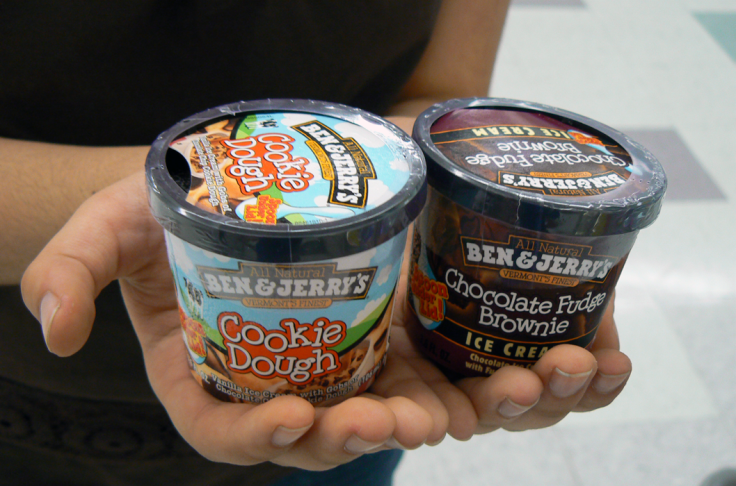Ben & Jerry's To Stop GMO Ingredient Use In Ice Cream, Pushes For Greater Transparency

There was never any doubt as to whether Ben & Jerry's ice cream contained traces of actual chunky monkey or fish food. But recently the Vermont duo has furthered its health-conscious quest by announcing plans to phase out all genetically modified organisms (GMO) from its ice cream.
The plan, which Ben & Jerry's said will probably last until 2014 due to the complex transition in sourcing ingredients, seeks to replace all genetically engineered ingredients with more natural alternatives.
In a statement the company released May 24, Ben & Jerry's said:
Now, we aren't scientists, we make ice cream, but we do know there are questions about whether GMO technology is truly living up to its promise of making bigger and better food, or whether it's just simply another way to further industrialize and consolidate our food and agriculture system. Because Ben & Jerry's has a long history of supporting family owned farms, we're concerned that increasing GMO crops comes at the expense of smaller farms, which we believe is a more sustainable kind of farming... There is a growing movement of consumers, and health and environmental advocates who are demanding that companies be transparent about whether or not their products contain GMOs.
This campaign comes on the heels of a bill aimed at giving consumers better access to their food's ingredients.
Proposed by Sen. Barbara Boxer (D-CA) back in April, the Genetically Engineered Food Right-to-Know Act pushes for more transparency between food manufacturers and those taking large scoopfuls out of their Chubby Hubby.
The bill is currently making its way through the House of Representatives and, if it passes, the United States will join sixty-four other countries - including China, Russia, India, and many members of the European Union, among others - who currently require the labeling of all GMO foods.
The current system in the United States allows individual states to set their own policies regarding mandatory labeling. Connecticut, for example, just passed a law requiring the labeling of all genetically modified foods. However, due to the state's small population, four other states in the surrounding region must pass a similar law to trigger Connecticut's. Another condition of the bill states the aggregate population of those states must exceed twenty million.
"Connecticut will be the first state in the nation to pass a GMO labeling law," said Speaker of the House, Brendan Sharkey (D-Hamden). "And this sets the stage for other states to join the growing movement to give consumers more choices. As a small state, Connecticut couldn't go it alone - this compromise strikes the right balance."
Meanwhile, in November of last year, California voters shot down Proposition 37 - the state's own version of a bill requiring the mandatory labeling of GMO foods. Funding from those against the bill significantly outweighed the funding of those supporting it, with agricultural biotech company Monsanto, together with Hershey Co., putting up $44 million to the supporters' $7.3 million.
As for Ben & Jerry's, the company echoes the sentiments of the Genetically Engineered Food Right-to-Know Act in their quest to become more consumer-oriented.
"We support those calling for transparency and a consumer's right to know and support the push for mandatory labeling," the statement says. "We ought to all have freedom to choose whether or not we want to eat food that has been genetically engineered. We think this is a fundamental right."
Ben & Jerry's caught some flak back in 2010 from the Center for Science in the Public Interest (CSPI), who claimed 48 of Ben & Jerry's products were not, in fact, "All Natural," as the company's packaging suggested.
Since CSPI's letter, Ben & Jerry's has phased out all cases where "All Natural" appeared beneath its iconic logo.



























